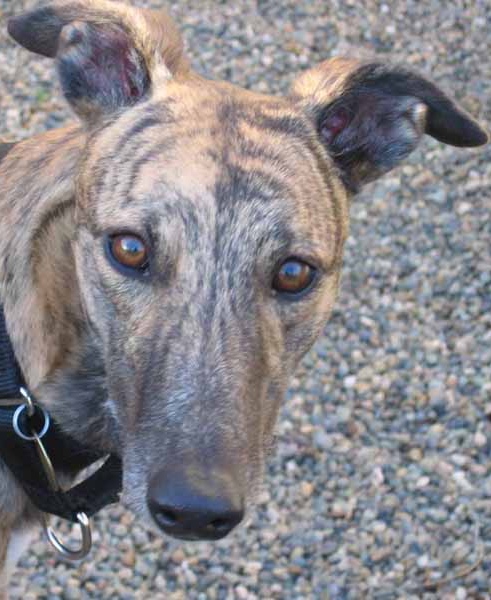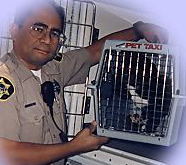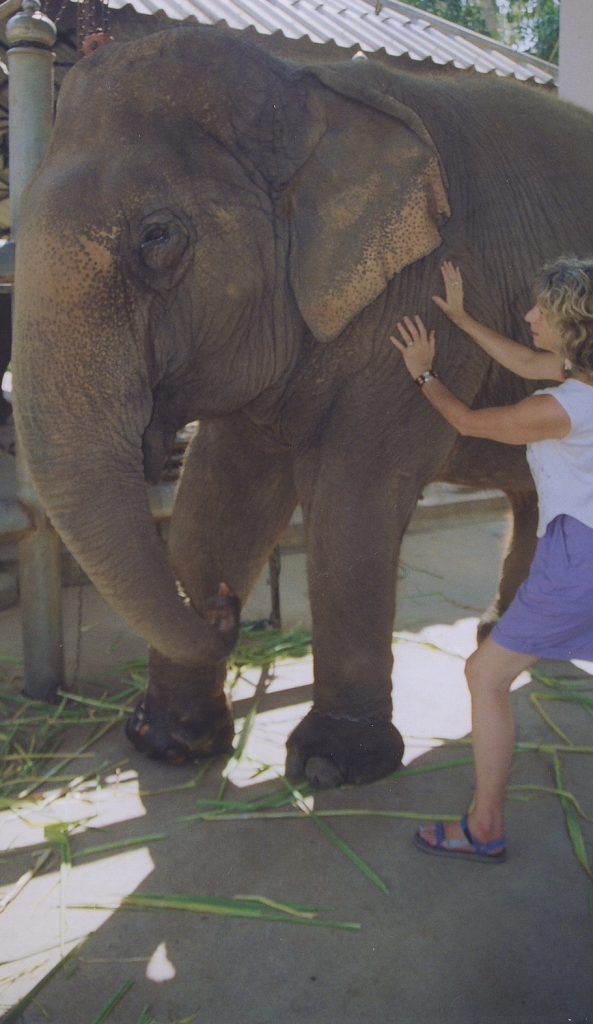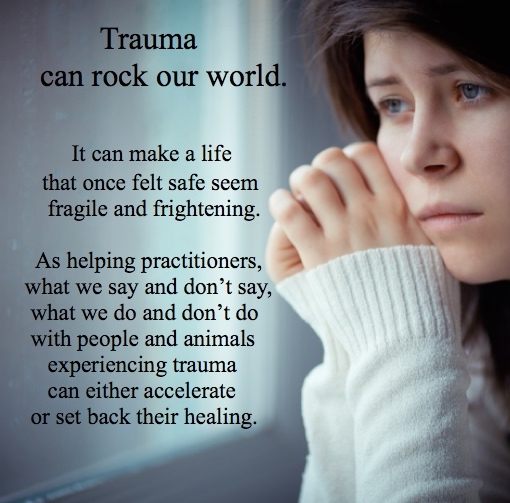Class Details
- Length: 3 sessions, 8 hours total
- Class Format: On-demand teleclass to take anytime, at your convenience. You will receive links to 8 hours of MP3 recordings (from a live class which includes the questions, comments and interactions of the participants with the instructor) and PDF’s containing 115 pages of detailed handouts.
- Tuition: $199
- Instructor: Stephanie LaFarge, Ph.D., Senior Director of Counseling Services, ASPCA and
Teresa Wagner, MS, Program Founder - Who Should Attend: Anyone in a role of supporting others—humans and/or animals—who wants to better understand and help clients with traumatic loss or other trauma, understand post-traumatic stress, its symptoms and a detailed review of support modalities. Particularly helpful for counselors, therapists, animal communicators, veterinary professionals and other animal care professionals who want to support others through trauma and pet loss.
- Register: Click here to purchase (This link will automatically redirect you to the Animals in our Hearts web site for purchase.)
- Testimonials: Click here
For students enrolled in the certification program:
- This is a required class
- Prerequisite: Preferable to have taken the first three CORE classes first
- Required Reading: Healing From Trauma, A Survivor’s Guide to Understanding Your Symptoms and Reclaiming Your Life, Jasmin Cori, MS
- Fee for Coaching & Mentoring session held after submission of Written Class Review: $198 (fee not applicable for students who have pre-paid the entire certification program fee which includes these sessions)
Objectives
In this class you will have an opportunity to:
- Acquire a solid, psychological understanding of trauma, traumatic bereavement, post-traumatic stress, complex post-traumatic stress, the reactions and symptoms involved, and how trauma impacts pet loss and grief support
- Develop an understanding of the unique trauma resulting from special circumstances such as sudden, unexpected or violent deaths, multiple losses, missing animals, moral dilemmas and the corresponding unique needs of grievers to such circumstances
- Explore and review and your personal trauma history by creating a loss and trauma history graph
- Build an acute understanding of how your own trauma experiences can impact your effectiveness in supporting others—-both positively and potentially negatively
- Learn strategies to constructively deal with personal triggers from your own trauma history that arise when interacting with and supporting a client
- Become familiar with the four elements of effective facilitation of helping others and how to apply them when supporting clients
- Acquire a thorough understanding of the eight steps necessary for providing effective and safe support of clients in trauma
- Learn the ethical and legal importance of referring clients to a therapist when their needs exceed your expertise or scope of practice, and the guidelines for helping them choose a grief counselor for pet loss
- Become familiar with specific tools and resources to share with clients which are known to support coping and healing from trauma
The class process includes presentations, dozens of handouts of information and exercises, discussion, reading material and private exercises to complete between class sessions.
Content and Purpose:
Trauma can make us feel like we have lost our footing and our place in the world. A life that once felt safe, normal or rewarding may now seem fragile or like a lifeless vacuum. Nothing may seem the same. Life as it was may be gone. Our sense of security may have disappeared. It can make us feel afraid and even terrorized. A cherished, fundamental source of love may have been stripped away, which is a typical way in which trauma impacts pet loss and grief support. Traumatic loss can make us feel unhinged, ungrounded, paralyzed, unsure, unsafe, vulnerable, alone, and wondering why the rest of the world goes on while we question whether we can. Some forms of trauma, such as abuse and abandonment, can create deep-seated, unconscious beliefs that we are unlovable, unworthy and that life may always be in some ways unsafe.
Helping people and animals with trauma requires a special sensitivity to their unique needs, an understanding of trauma reactions, as well as an ability to remain not merely loving and compassionate, but calm, highly empathic and fully present no matter how intense the clients’ pain, no matter how frenzied or off center their energies may be or how disturbing their stories may seem.
Effectively supporting people and animals who are in trauma requires knowing when to help them stabilize and cope and when to guide them to go more deeply to heal. It means always knowing that no matter what healing tools we have in our repertoire of expertise, our ability to gauge what the client needs at any moment must precede offering tools, and that building and maintaining trust is foremost. While this is true in all helping relationships, it is crucial with those in trauma.
The work of internationally recognized trauma specialists Jasmine Cori, M.S., Judith Herman, M.D., Aphrodite Matsakis, Ph.D., Babette Rothschild, M.S.W., Therese Rando, PhD., Edward K. Rynearson, M.D. and John Wilson, Ph.D. are referenced and incorporated into the content of the class to help us further understand and help our clients when trauma impacts pet loss and grief support. A detailed list of further reading and resources list is provided for future reference and learning.
For further skill building in helping clients impacted by trauma, you may be interested in our Essential Counseling Skills class.

People and animals who have troubling symptoms from trauma should not be viewed as having something wrong with them,
but rather as people or animals who are dealing the best they can in response to having had something traumatic
happen to them, for which they need and deserve our help.
~ TW
How Trauma Impacts Pet Loss and Grief Support
Session 1: Understanding Trauma Conceptually
- Definitions: Trauma, traumatic bereavement, post-traumatic stress, complex post-traumatic stress, and secondary traumatic stress
- Symptoms of post-traumatic stress and factors impacting severity
- Types of traumatic death and responses to traumatic death
- Risk factors for traumatic bereavement
- Factors influencing the grief experience and possible complicated or traumatic bereavement
- Understanding the trauma of special circumstances of loss and unique needs of grievers
- Sudden, unexpected death
- Violent death
- Multiple losses in a relative short period of time
- When a loved one is missing and closure may seem impossible
- Moral dilemmas
- An energetic chakra view of the impact of trauma
- A view of trauma from Maslow’s Hierarchy of Needs
- Trauma with a net and trauma without a net
- Potential positive effects of exposure to trauma
- Differences between coping and healing
How Trauma Impacts Pet Loss and Grief Support
Session 2: Understanding Trauma Personally
- Examining our personal trauma histories
- Exercise: My Personal Trauma Profile
- Understanding and recognizing how our own trauma experiences impact our effectiveness in supporting others—both positively and potentially negatively
- Generalizing: The harmful use of self-awareness of one’s healing experiences
- Assuming what worked for us will work for others and imposing that as “help”
- The double duty role of helpers:
- Being fully present and empathic with clients
- Being fully present and empathic with our own issues and alert to which may be triggers
- Preventing and dealing with personal triggers and countertransference
- Being alert to our very real and natural reactions to client personalities, information and history
- Planning for commitment to ongoing self-awareness and self-care
How Trauma Impacts Pet Loss and Grief Support
Session 3: Helping Others with Trauma
- Understanding who we are and what we bring to the client and the helping relationship
- Understanding the intersection of our values and histories and those of our clients
- The four elements of effective facilitation of helping:
- Offering love and compassion
- Setting boundaries and using energetic protection and working in a framework of professional ethics
- Expressing empathic inquiry and response throughout every consultation
- Offering specific healing strategies as appropriate, after empathy
- Willingness and ability to be present with intense emotional pain and stories of others without recoiling, denying or diminishing their pain, or feeling compelled to swiftly fix or eliminate their pain
- Being absolutely scrupulous about:
- Not judging what others experience as traumatic, even if we do not
- Not reframing clients’ pain or situation from our worldview or values
- Not imposing our personal values onto clients
- Being calm in the face of another’s emotional frenzy, overwhelm or meltdown
Testimonials
The class was very thorough and thoughtfully put together?
Teresa has a unique gift for teaching others how to help those suffering from life traumas. This is not easy work, as there are so many delicate layers involved, but Teresa breaks it down in a way that is easy to digest and put into practice.
~ Lorraine K, Falston, Maryland
This was a fantastic class!
So much rich information. I learned many new things. I do believe this class has both deepened and created shifts in awareness. I feel that I learned some really helpful ways to work with clients in trauma. Especially in languaging. For me, it helped me have ways to stay neutral, present and open. And how to gracefully work with “curve balls”–situations that start out as one thing and shift into something else during the session. This was a fantastic class! I will definitely use the materials again and again. I would recommend this course to others. As always, Teresa is a wonderful instructor/guide/facilitator, Dr. Stephanie LaFarge was probably the other highlight for me. I enjoyed the program, and wish it was longer :).
~ Julie L, Madison, Wisconsin
Learned more than I ever expected?
I learned that the situations I thought of as “just life” were actual traumas deserving of healing, not just coping. Loved the exercises and referrals. Opened me up to understanding how we can be traumatized and all of the various methods of healing. I am in awe of Teresa’s knowledge of both clinical and healing arts worlds and I have never met a more empathetic, loving person…and adore her love of animals!
~ Henriette A, Palm Desert, California
It helped me get even clearer about the importance of language, tone, what is said, and how it’s said
The exercises that focused on our own trauma were extremely helpful. They not only helped me to recognize the degree of trauma I’ve experienced in my life (both minor and major), but also enabled me to view the trauma from the place of a compassionate witness rather than becoming entrenched in the past experiences or memories. This created an overall feeling of space and compassion for myself and all I have been through, rather than judgment. The class also helped me recognize how my personal traumas could impact my work with my clients, both in a positive way (from a place of compassion because I, too, have experienced trauma) and in an unhelpful way (if my own traumas have not been resolved).
It helped me get even clearer about the importance of language, tone, what is said, and how it’s said when helping clients with trauma. Being aware of the the importance of softness of voice; using language and questions that empower rather than lead/direct the client; helping the client to feel safe and supported; and being aware of the importance of being fully present for the client were all helpful reminders.
My most significant learning from this class was the importance of ensuring that the client feels empowered, heard, supported and safe.
The handouts were superb! I appreciate all of the time and energy that were put into preparing such detailed, well-researched and professional handouts. I loved the quotations that were included. The handouts contained a wealth of helpful information and will be an excellent resource for me to refer back to. I found these very helpful, especially the examples of what might be said to a client. it was really helpful to see the different types of possible responses and to look more closely at why some were more appropriate than others.
Teresa is a superb teacher and communicator. She compassionately holds the space for class participants and has a beautiful way of expressing her thoughts. She is non-judgmental which makes participants feel comfortable in expressing their thoughts, feelings and opinions.
~ Dixie G, North Vancouver, British Columbia, Canada
Five stars!
This class was amazing, very powerful. I learned so much about trauma, grief and the ways to address this in helping others. The quality, scope and depth of this class was far beyond what I had expected (and I had high expectations!) They were a wealth of knowledge that I could not have found anywhere else. The quality, depth and breadth of the material was Ph.D level…and I was so happy to have it. Handouts were invaluable.
I learned that trauma and post trauma stress has many layers and components. and how trauma’s effects can create a sense of disempowerment and disconnectedness for the person.
It was very helpful to understand that working thru my own issues is very important. You can be accidentally triggered by things you might hear….and how to stay present with the client and then deal, later, with your own reactions to this, with a friend or mentor.
This class was a wonderful, multi-faceted learning experience for me….now I want more ! And it was, by the way, so wonderful to be around very evolved people who love and respect animals…the energy was very healing for me, just being around that. I think that this class opened a whole new world of things for me to learn. It not only taught me many new ways to look at trauma and loss, but also I learned the critical factors needed to have a successful client/helper interaction around this subject.
Teresa, is a treasure…her energy and beautiful spirit is on a level I seldom get to experience. The way she set up this class, and taught it, was comprehensive, on a very high level, very clear and was not just a ‘class’ but also a very powerful experience for me. It simply would not have been the same without her. She is a rare breed of highly developed intellect and a truly evolved soul that I was honored to spend time with. Bless you for all you do for the animals Teresa. You are truly one in a million and we are all very lucky to be able to share in your wisdom and insight on animals and on ourselves. I also got so much out of the insights and comments of the other people who were on the line. And although we only got to scratch the surface with Stephanie LaFarge, she was a wonderful addition to the course as well.
Stephanie was excellent. She showed us a glimpse of the terrible and wonderful world of helping animals and responders. It’s not often that we get the opportunity to spend time with someone of her experience and caliber in the animal advocacy field.
I could go on and on…I learned so much about trauma and about myself and the individual animal beings we share our lives with. Five stars!….definitely I would recommend this to anyone I know in this field.
~ Faye T, Miami, Florida

perhaps in very challenging circumstances



